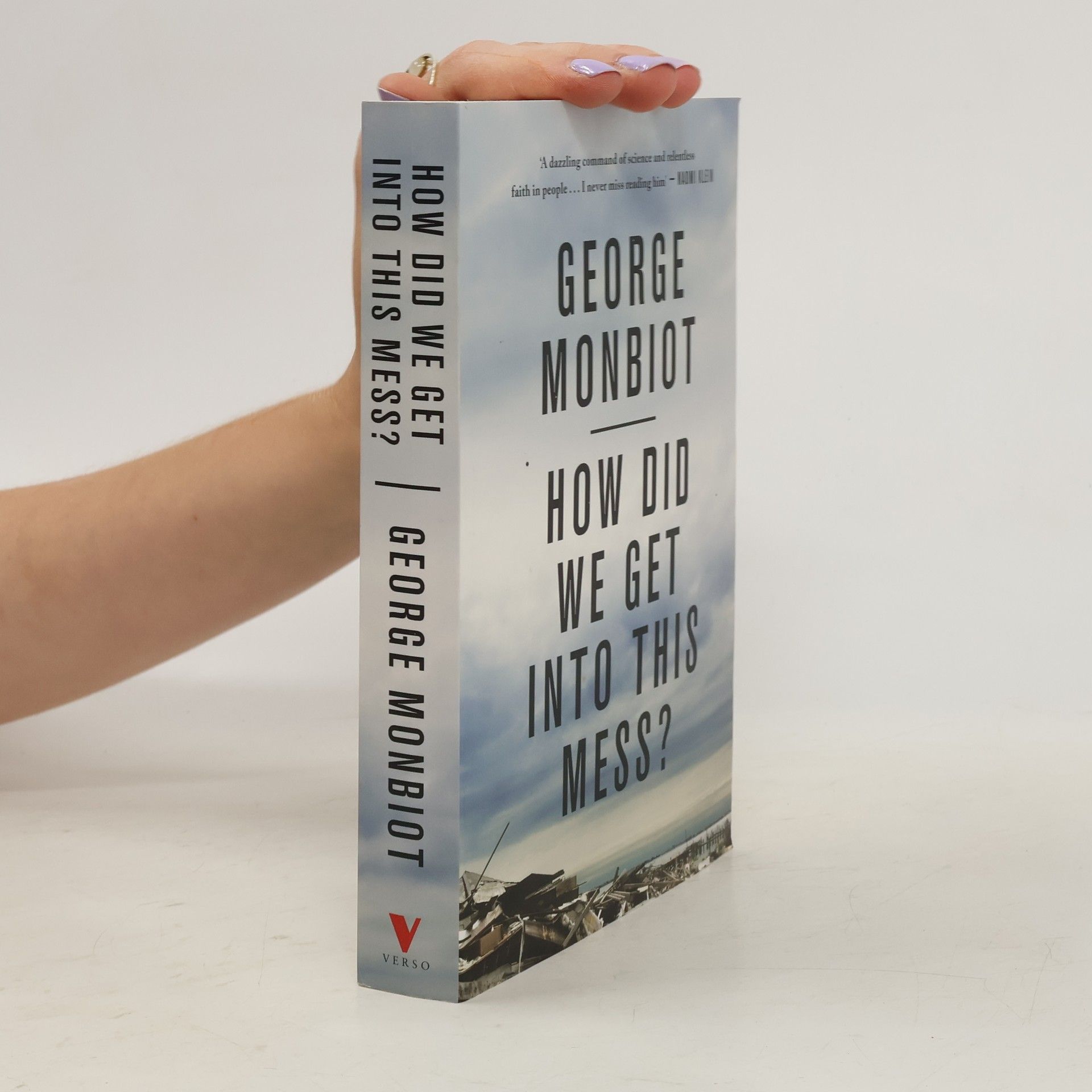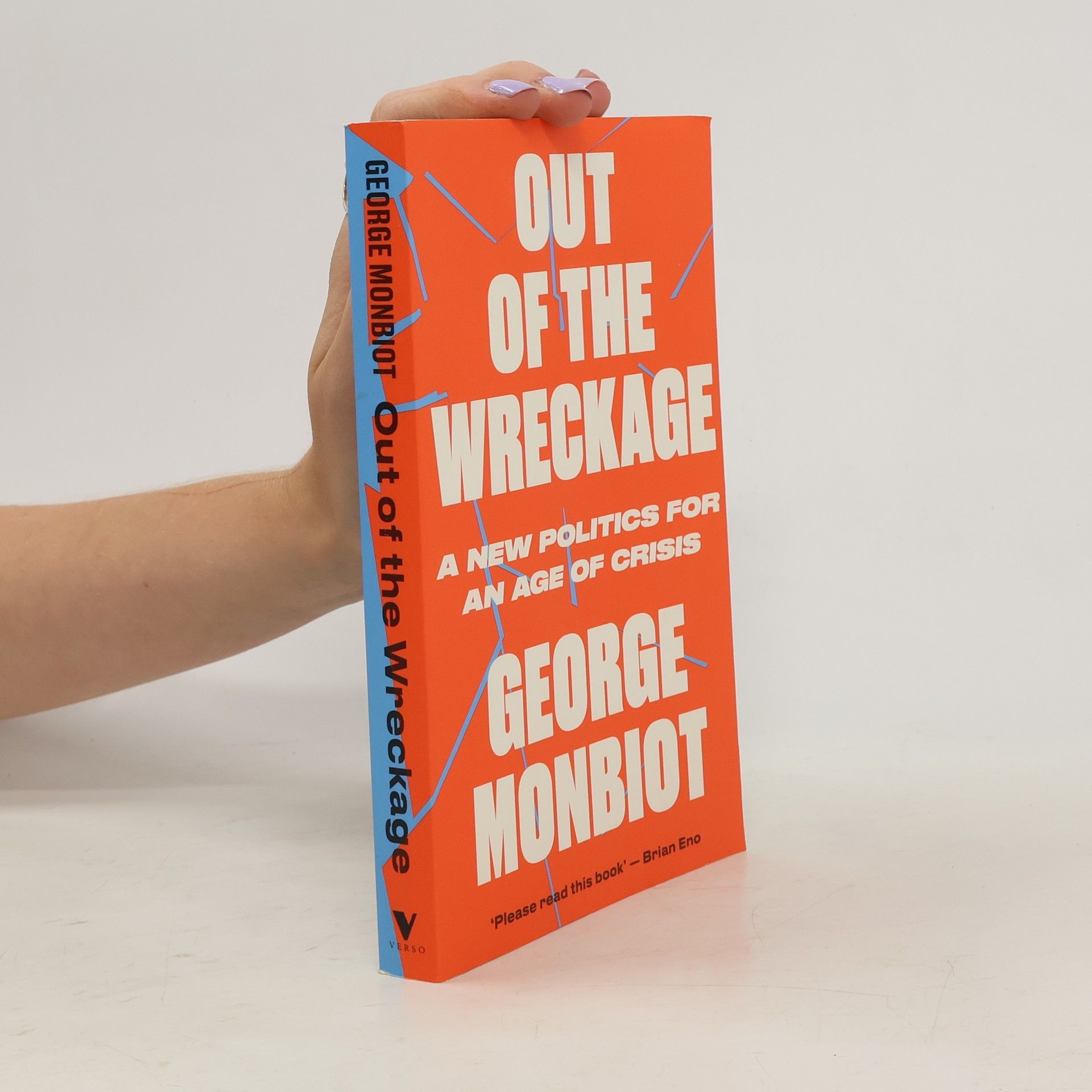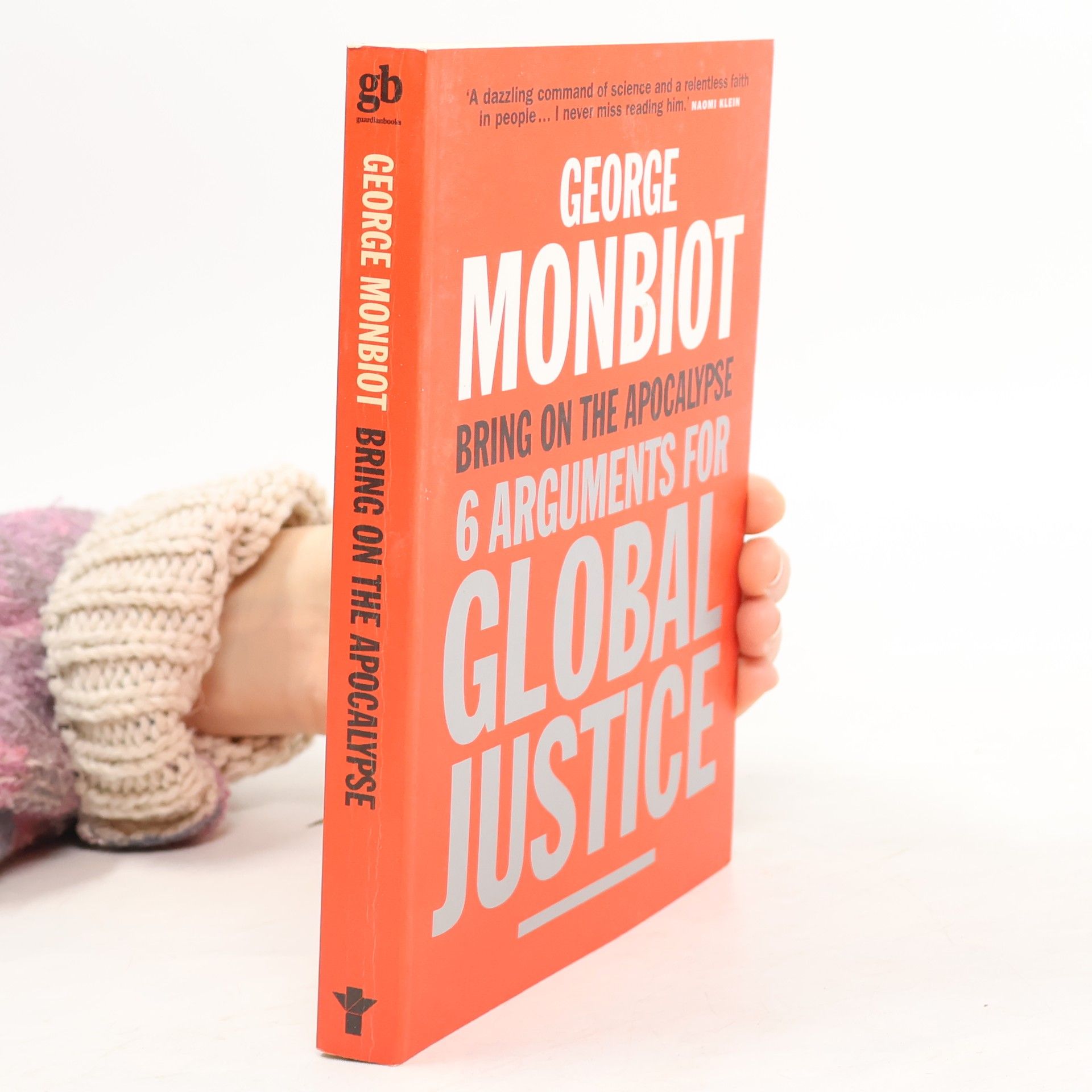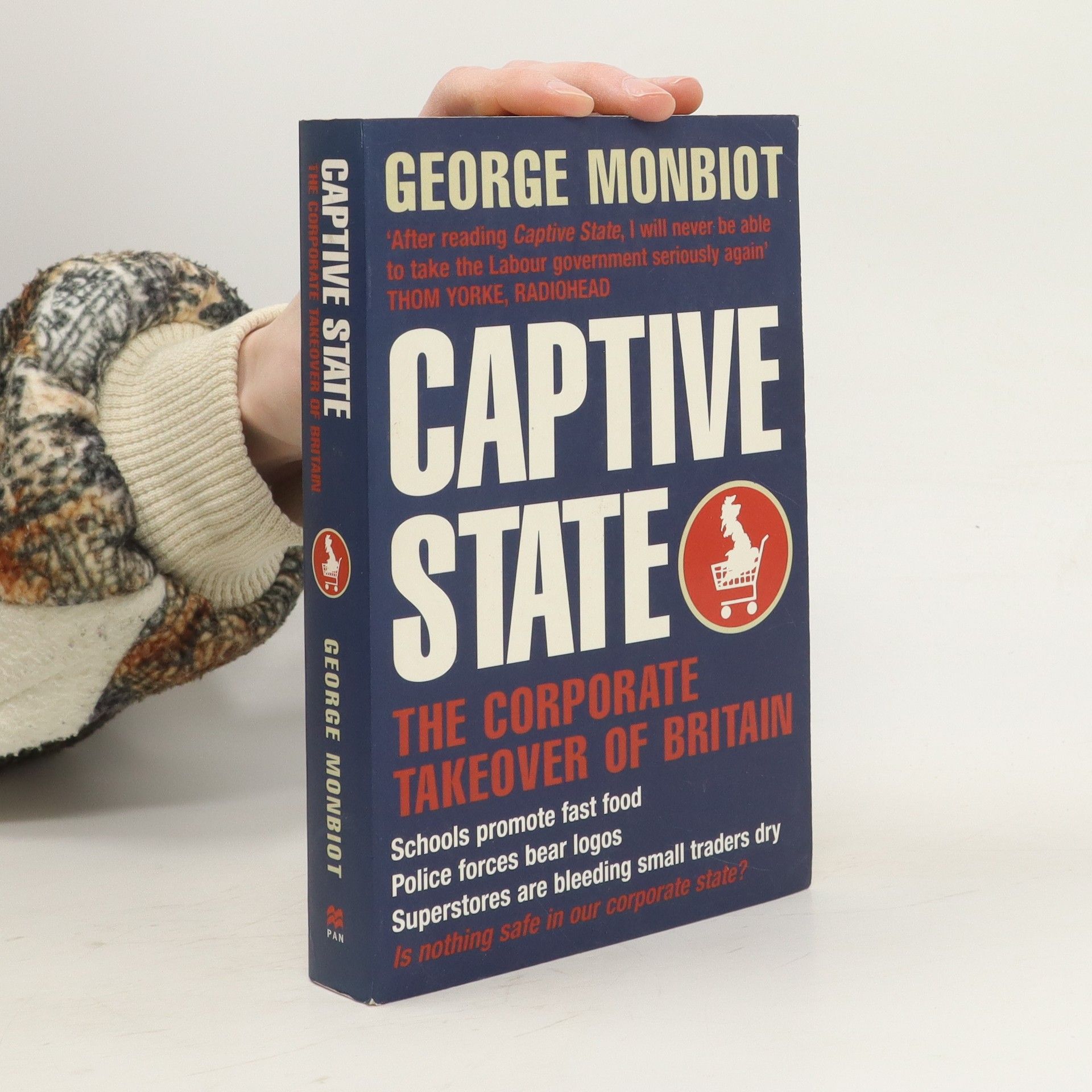Exploring innovative solutions, this book presents a dual approach to addressing two of the world's most pressing issues: climate change and global hunger. It delves into sustainable practices and technologies that can simultaneously mitigate environmental damage and enhance food security. By examining case studies and proposing actionable strategies, the author inspires readers to envision a future where ecological balance and human nourishment coexist harmoniously.
George Monbiot Libros







In twenty short books, Penguin brings you the classics of the environmental movement. In the galvanising speeches and essays brought together in This Can't Be Happening, George Monbiot calls on humanity to stop averting its gaze from the destruction of the living planet, and wake up to the greatest predicament we have ever faced. Over the past 75 years, a new canon has emerged. As life on Earth has become irrevocably altered by humans, visionary thinkers around the world have raised their voices to defend the planet, and affirm our place at the heart of its restoration. Their words have endured through the decades, becoming the classics of a movement. Together, these books show the richness of environmental thought, and point the way to a fairer, saner, greener world.
Feral
- 334 páginas
- 12 horas de lectura
How many of us feel confined in our lives, yearning for a broader existence? This gripping narrative chronicles George Monbiot's journey to reconnect with nature and explore a new way of living. He illustrates how restoring and rewilding damaged ecosystems can reintroduce wonder into our lives. By incorporating remarkable scientific insights, the story presents a fresh, positive environmentalism that allows nature to thrive on its own terms. Critics have praised the book as passionate and timely, emphasizing the need for expansive thinking and a break from the stifling effects of modern monoculture. It resonates with a collective desire to rewild both our landscapes and ourselves, presenting an optimistic vision for the future. The author advocates for a world less dominated by fear and greed, encouraging readers to rethink their perspectives on nature. The narrative invites us to imagine lost lives and species that could still exist, igniting dreams of a wilder world where creatures like lynx and beavers roam freely. This thought-provoking work challenges us to reconsider our relationship with the environment and inspires a longing for a more vibrant, interconnected existence.
In these incendiary essays, George Monbiot tears apart the fictions of religious conservatives, the claims of those who deny global warming and the lies of the governments and newspapers that led us into war. He takes no prisoners, exposing government corruption in devastating detail while clashing with people as diverse as Bob Geldof, Ann Widdecombe and David Bellamy. But alongside his investigative journalism, Monbiot's book contains some remarkable essays about what it means to be human. Monbiot explores the politics behind Constable's The Cornfield, shows how driving cars has changed the way we think and argues that eternal death is a happier prospect than eternal life.
Out of the Wreckage
- 224 páginas
- 8 horas de lectura
What does the good life - and the good society - look like in the twenty-first century?
How Did We Get into This Mess? Politics, Equality, Nature
- 352 páginas
- 13 horas de lectura
George Monbiot is one of the most vocal, and eloquent, critics of the current consensus. How Did We Get into this Mess?, based on his powerful journalism, assesses the state we are now in: the devastation of the natural world, the crisis of inequality, the corporate takeover of nature, our obsessions with growth and profit and the decline of the political debate over what to do. While his diagnosis of the problems in front of us is clear-sighted and reasonable, he also develops solutions to challenge the politics of fear. How do we stand up to the powerful when they seem to have all the weapons? What can we do to prepare our children for an uncertain future? Controversial, clear but always rigorously argued, How Did We Get into this Mess? makes a persuasive case for change in our everyday lives, our politics and economics, the ways we treat each other and the natural world
Out of the Wreckage. A New Politics for an Age of Crisis
- 214 páginas
- 8 horas de lectura
A leading environmental and political commentator draws a roadmap towards new politics—offering a rallying cry for a new vision of what a ‘good’ society can be—in this “dazzling command of science and relentless faith in people” (Naomi Klein, author of The Shock Doctrine) What does the good life—and the good society—look like in the 21st century? A toxic ideology of extreme competition and individualism has come to dominate our world. It misrepresents human nature, destroying hope and common purpose. Only a positive vision can replace it, a new story that re-engages people in politics and lights a path to a better future. George Monbiot shows how new findings in psychology, neuroscience and evolutionary biology cast human nature in a radically different light: as the supreme altruists and cooperators. He shows how we can build on these findings to create a new politics: a “politics of belonging.” Both democracy and economic life can be radically reorganized from the bottom up, enabling us to take back control and overthrow the forces that have thwarted our ambitions for a better society. Urgent and passionate, Out of the Wreckage provides the hope and clarity required to change the world.
Heat
- 320 páginas
- 12 horas de lectura
Started to worry about just how hot our world is going to get, and whether you can do anything about it? As the effect of climate change grows by the day, so does the amount of hot air and bluster spouted by politicians and businessmen on what we should do about it. Using investigative journalism, this work presents facts and inspiring ideas.
How Did We Get Into This Mess?
- 342 páginas
- 12 horas de lectura
Leading political and environmental commentator on where we have gone wrong, and what to do about it “Without countervailing voices, naming and challenging power, political freedom withers and dies. Without countervailing voices, a better world can never materialise. Without countervailing voices, wells will still be dug and bridges will still be built, but only for the few. Food will still be grown, but it will not reach the mouths of the poor. New medicines will be developed, but they will be inaccessible to many of those in need.” George Monbiot is one of the most vocal, and eloquent, critics of the current consensus. How Did We Get into This Mess?, based on his powerful journalism, assesses the state we are now in: the devastation of the natural world, the crisis of inequality, the corporate takeover of nature, our obsessions with growth and profit and the decline of the political debate over what to do. While his diagnosis of the problems in front of us is clear-sighted and reasonable, he also develops solutions to challenge the politics of fear. How do we stand up to the powerful when they seem to have all the weapons? What can we do to prepare our children for an uncertain future? Controversial, clear but always rigorously argued, How Did We Get into This Mess? makes a persuasive case for change in our everyday lives, our politics and economics, the ways we treat each other and the natural world.
Captive state. The Corporate Takeover of Britain
- 430 páginas
- 16 horas de lectura
Monbiot documents the end of representative government in Britain. The state is no longer the initiator of policy but an increasingly helpless bystander. As institutional corruption strikes at the heart of public life, in a contest between the desires of big business and the needs of the electorate, the electorate loses out every time.



